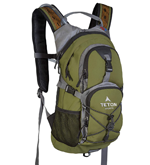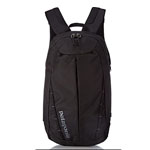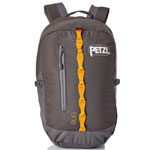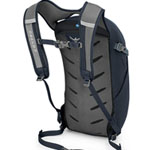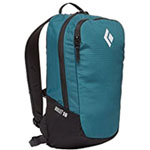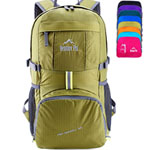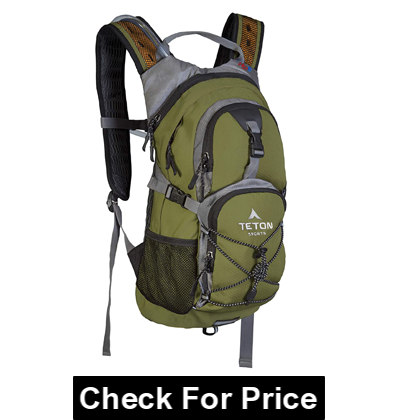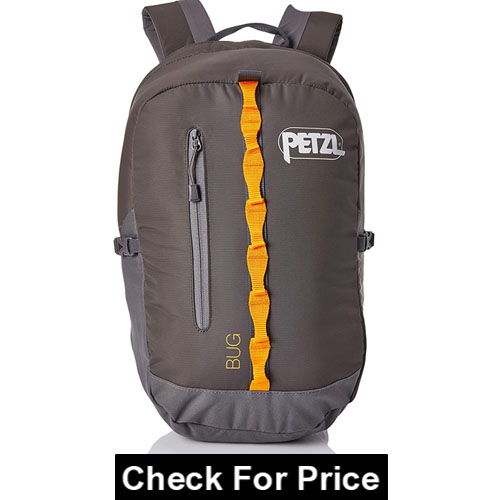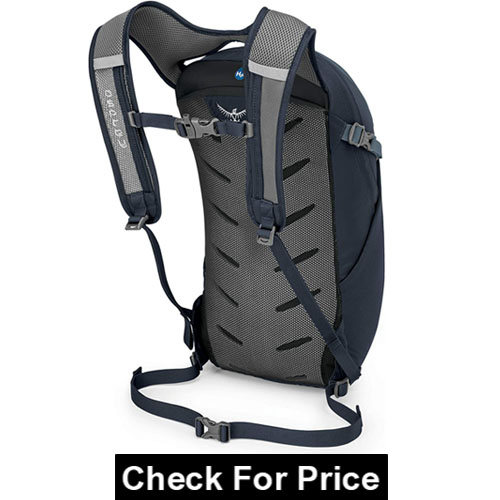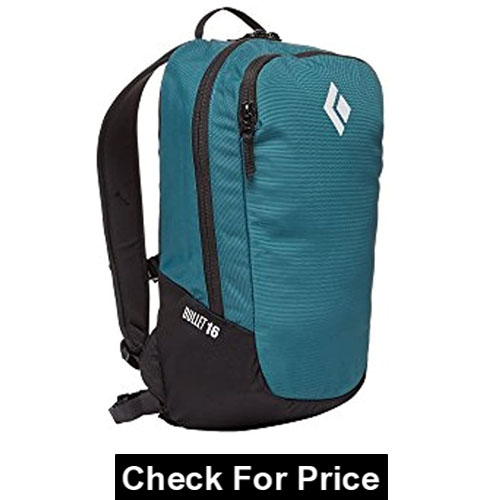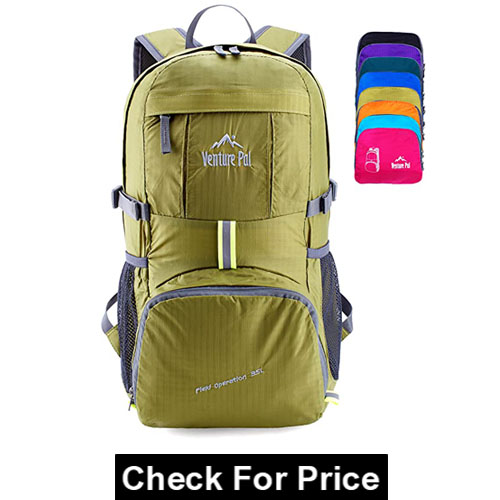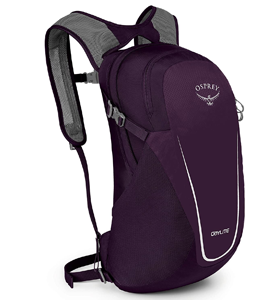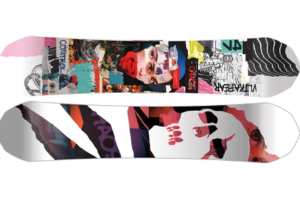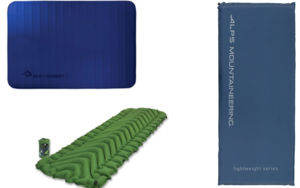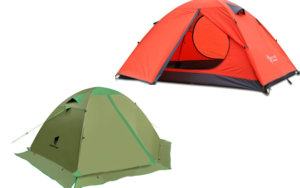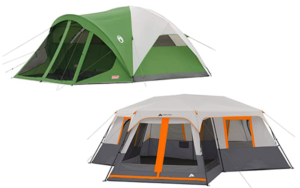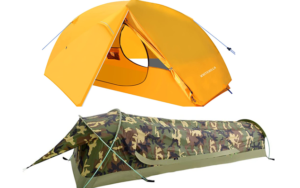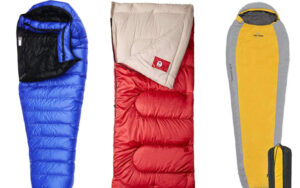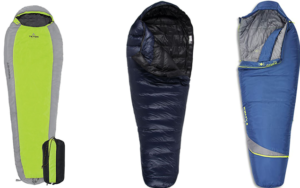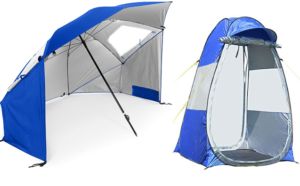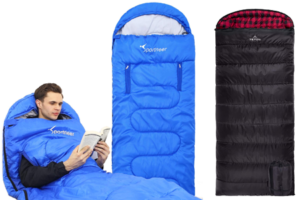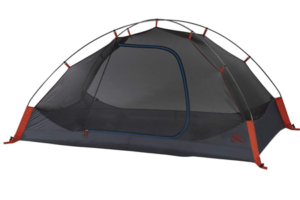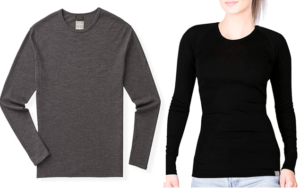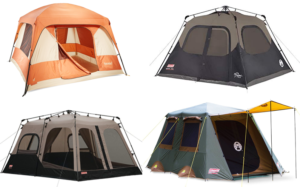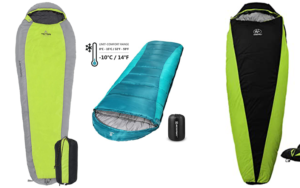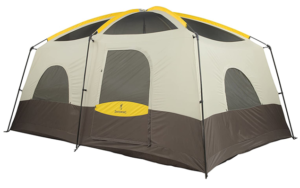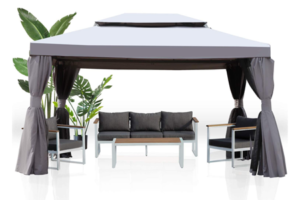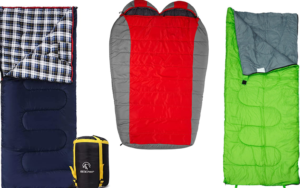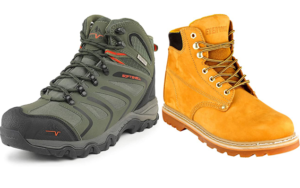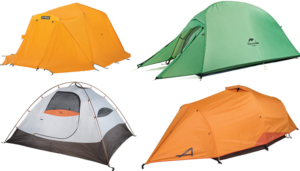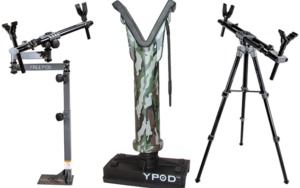In a hurry? My favorite is this REI Co-op Flash 18 Pack. See it at Amazon.
5 Best Alpine Climbing Backpacks Review in 2023
TETON Sports Oasis- 18L Hydration Pack with Free 2-Liter water bladder
The Oasis from TETON Sports is simply one of the best backpacks for hiking, trekking, biking, or just traveling. It is a highly durable and compact backpack with adjustments that allow you to customize the fitting.
You also get a free 2-Liter water bladder with a kink-free sip tube for comfortable access. Overall, this one is a must-have; and it comes in several different colors, so you can easily get the one that suits your style.
PROS
• Highly durable built quality
• Compact structure
• Customizable
• Free 2-liter water bladder
• Several color options
CONS
• The bladder has to be removed fully for a refill.
Patagonia Linked Pack 18L
When climbing, it is important to find a backpack that will prevent your load from shifting. One of the best alpine climbing packs to address this issue is the Patagonia Linked Pack 18L, which is designed to be close-fitting and shadow your movement while you climb.
The Patagonia Linked Pack 18L is designed to be a leader’s pack on long routes or a follower’s pack on short routes. It features a top-loading design to give you easy access to gear at handing belays, and it is designed to keep the gear in place. It also comes with an 18L hydration sleeve.
Additionally, it is extremely comfortable because of its lightweight and mesh shoulders and back. This pack only weighs 1lb., 3.7 oz. The shoulders and back are made from mesh, which will allow your skin to breathe while wearing the pack.
The rest of the Patagonia Linked Pack 18L is made from Cordura ballistic nylon exterior and polyester lining. Both have polyurethane coatings. This material is heavy-duty and ensures that your pack will not get damaged on your climbs.
Pros
• Large size
• Carries 18L of water
• Only weighs 1lb., 3.7 oz.
• Mesh shoulder straps and back
• Durable
• Water repellent
• Cordura ballistic nylon exterior
• Reinforced handles
• Exterior zippered stash
Cons
• Expensive
Petzl Bug
If you want a climbing pack that is great for single-day, multi-pitch climbing, you will be interested in the Petzl Bug. This pack is lightweight, versatile, and adaptable but able to carry enough tools and gear for a day’s worth of hiking or climbing because of its 18L volume.
The Petzl Bug is specifically designed for multi-pitch climbing. It is designed with a low profile, allows for a full range of movement, stowaway waistbelt, and carries high on your back. As a result, this back will allow you to access your harness with ease.
At the same time, the Petzl Bug can be used for everyday use. It comes with side compression straps, an adjustable strap, wide exterior pockets, an interior compartment for either a hydration system or laptop, and wallet pocket. These features allow this bag to be useful both on and off the rocks.
Pros
• 18L volume
• Compact design
• Low profile shape
• Adaptable for climbing or everyday use
• Adjustable sternum strap
• Foam back for support
Cons
• Expensive
• Thinner body fabric
REI Co-op Flash 18 Pack
Another great multiuse climbing pack is the REI Co-op Flash 18 Pack. This pack is great around town, on the trail, and on the rocks since it can convert into an alpine climbing pack or a stuff stack depending on how the bag is turned.
The REI Co-op Flash 18 Pack comes with a breathable and ergonomic shape that maximizes your body’s movement. It features a hipbelt and sternum strap to keep the pack in place as you climb, but they can be removed if desired. The pack is also made with breathable mesh shoulder straps and a removable foam back panel.
This pack comes with a number of features that make it more useful. Notably, it comes with a hydration-compatible design that includes a hose exit port and sleeve. The REI Co-op Flash 18 Pack even comes with weather flaps on the zippers and exterior loops for extra gear.
If you want to use the bag off the rocks though, you can remove the padding and turn the bag inside-out so it can become a lightweight stuff sack.
Pros
• 18L volume
• Mesh shoulder straps
• Removable back padding for support
• Hydration-compatible
• Weather flaps
• Exterior loops
• Quick-pull drawcord
• Multiuse pack
• Affordable
Cons
• Does not include additional compartments
Black Diamond Bullet 16 Pack
More extreme climbers need a bag that is designed to handle chimneys and other intense conditions. One of the more heavy-duty alpine packs is the Black Diamond Bullet 16 Pack, which is designed to handle chimneys and includes removable features for a lightweight experience.
The Black Diamond Bullet 16 Pack is designed with a sleek and trim look that is suitable for all climbing conditions. It is made from 420D nylon and 1260D ballistic nylon, which ensures that it will withstand scratches and scraps even in the chimneys.
This pack even comes with several removable features to make the Black Diamond Bullet 16 Pack both comfortable and lightweight. The bag features a removable 20mm webbing hipbelt that will keep the bag in place while climbing. It also features a removable foam back panel that can make the bag more secure when installed.
Pros
• Durable
• Equipped for chimneys
• Removable webbing hipbelt and back panel
• Tuckable shoulder straps
• External and internal zippered pockets
• Sleek look
Cons
• Does not include exterior loops for extra gear
Venture Pal Lightweight Packable Day Pack
If you plan to need a lot of compartments, you will be interested in the Venture Pal Lightweight Packable Day Pack. This alpine pack is heavy-duty enough for climbing, but it also includes many compartments for hiking trips or day use.
As the name suggests, the Venture Pal Lightweight Packable Day Pack is extremely lightweight. It weighs a meager 0.70lbs. and can fold into itself because of its compact design. Whenever you are storing the bag or traveling with it, you can fold the entire bag into its zippered inner pocket, allowing you to store it anywhere.
At the same time, the Venture Pal Lightweight Packable Day Pack is heavy-duty and durable for climbing purposes. It is made from quality tear- and water-resistant material, allowing you to take it in extreme conditions.
The Venture Pal Lightweight Packable Day Pack also comes with multiple compartments, including a main zipped compartment, two zipped front compartments, and two side compartments. These many compartments will make storing and organizing your gear much easier.
Pros
• Lightweight
• Compact design
• Folds into itself for storage
• Durable
• Tear- and water-resistant
• Multiple compartments
• Affordable
• Multiple color options
Cons
• Larger than other climbing packs
How to Find the Right Alpine Climbing Backpack?
Follow the tips given below to find the right backpack that suits your needs.
Lightweight:
Every ounce counts when you are out climbing or hiking. Therefore, always go for a lightweight and comfortable pack on your back during the climb or hike.
Capacity:
Check the capacity of the bag and go for the one that can easily hold all the essential items you carry during your hike. The easiest method is to calculate the overall weight of all your items and then choose the backpack that can sustain that weight.
Compact:
You wouldn’t want a bag that is bulky and uncomfortable during physical activities like climbing. Therefore, you must choose a backpack with outstanding pockets and zippers.
Breathability:
In hot weather, the stuff inside your backpack can get damaged only due to the immense humidity. Therefore, breathability is an important factor. Always go for a backpack that has breathable and cool material. That way, the items inside remain cool and fresh throughout the activity.
Affordability:
Now, you cannot afford to punch a hole in your pocket just for a backpack. It is a rough-use material, so go for the one that has all the features and fits your budget as well.
Frequently Asked Questions
How do you size a pack?
Backpacks for outdoor activities come in different sizes. You want the backpack to be large enough to carry your contents, but you don’t want it to be so heavy that it weighs you down. Here are the ideal weights based on the intended backpack usage:
• Daypacks: 20L to 35L
• Weekend Packs: 50L to 70L
• Expedition packs: 80L to 120L
What goes in a guide’s pack?
Here is what should go in a guide’s pack:
• Sleeping bag
• Sleeping pad
• Tent
• Rain tarp
• Clothing layers
• Rope
• Alpine ice rack
• Harness
• Technical tools
• Crampons
• Trekking poles
• Helmet
• Food
• Stove set
• Water
• First aid kit
Are women’s packs and men’s packs different?
Women’s packs and men’s packs can be different depending on the brand you purchase. For some brands, women’s packs are designed for the average female’s torso length, which is smaller than the average male’s torso length.
Additionally, some brands make the harness design different to account for the size and shape of the female breast. For example, some brands narrow the harness at the entry-point or taper outwards below the collarbone.
Women’s packs also have different sized and shaped hipbelts. To account for women’s narrower frame, women’s packs tend to include hipbelts that are canted upward and patterned with a narrower profile.
If you are considering buying a gender-specific alpine pack, make sure to check with the individual brand’s design specifications, and talk to a professional to find a size and shape that fits your body correctly.
Conclusion
Of the five alpine packs, the Patagonia Linked Pack 18L is the best option. It has the largest water-capabilities of all five packs, and it is the most durable, ensuring that you get your money’s worth for this product.
Additionally, the Patagonia Linked Pack 18L is most suited for climbing purposes because of its unique design. Instead of simply sitting on your back, this pack is designed to move with your body, preventing it from infringing on your movement and climbing capabilities.
Though the Patagonia Linked Pack 18L costs more than the other options on the list, you should invest in this bag because of its durability, functionality, and comfortability. If you cannot afford this option, you should consider the Petzl Bug instead.

